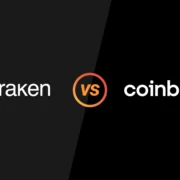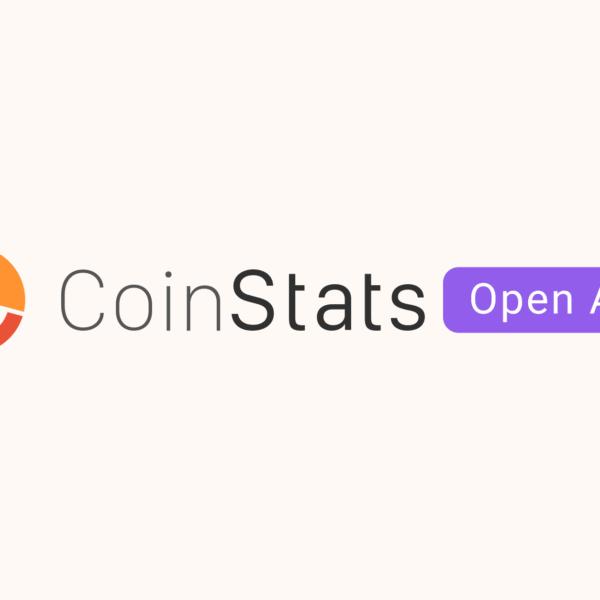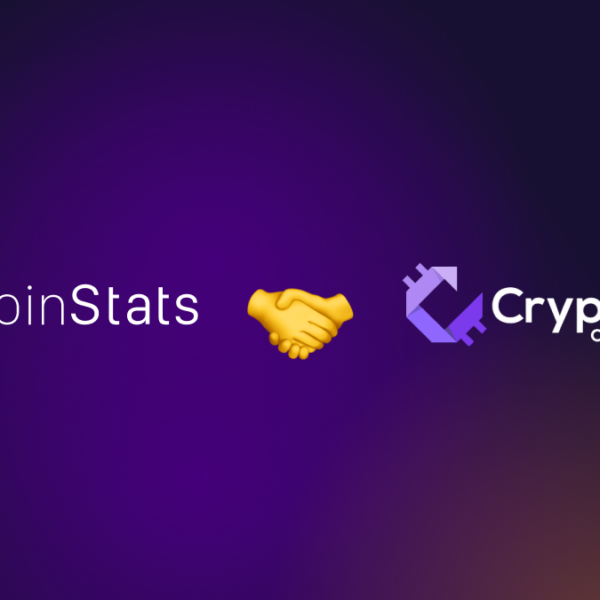
From Bitcoin and Ethereum to less popular altcoins, there are thousands of cryptocurrencies to date, many of which struggle to bring mass awareness to the public and encourage adoption. And that’s where crypto airdrop comes in.
Crypto airdrops are a marketing strategy used by cryptocurrency projects to send tokens to specified wallet addresses for free or in exchange for minimal promotional work. Some of the most lucrative airdrops, such as Uniswap, dYdX, LooksRare, Optimism, etc., resulted in free money of over $10,000, while Bored Ape Yacht Club owners received a cryptocurrency airdrop worth around $100,000 for every ape NFT they owned.
Cryptocurrency airdrops come in different forms and are designed to expand adoption, generate interest, and foster a thriving crypto community. Most crypto projects airdrop free tokens to generate buzz ahead of an anticipated launch or use the crypto airdrop model to reward early users.
Key Takeaways
- Airdrops are a marketing strategy deployed by crypto projects to increase their adoption and raise awareness.
- The amount of money earned through airdrops can vary from a few to thousands of dollars.
- Depending upon the eligibility criteria, airdrops can be of multiple types, such as bounty, standard, holder, etc.
While they may seem lucrative and help you make additional returns on your portfolio, crypto airdrops also carry some risks.
This article will tell you everything you need to know about crypto airdrops, including the best potential airdrops for 2023, how to get crypto airdrops, and more.
Let’s get right to it!
How Do Crypto Airdrops Work?
A crypto airdrop is a marketing method that involves the distribution of free crypto tokens to a user’s wallet to promote up-and-coming crypto projects. Airdrops aim to enhance the exposure of a crypto project and make the token valuable early on to stimulate its trade. They reward early adopters, incentivize the onboarding of new users, and grow their community to raise awareness of the project and encourage the trading of a newly issued token.
Crypto token airdrops have been around since 2014 when the Auroracoin project airdropped free AUR tokens. The project aimed at making AUR Iceland’s national cryptocurrency, so the citizens of Iceland received 31.8 AUR in the form of airdropped tokens. Since then, thousands of blockchain networks and cryptocurrency projects have used the airdrop method to increase awareness and promote adoption.
Cryptocurrency projects apply various crypto airdrop models requiring users to carry out minimal tasks to receive rewards. The most common crypto airdrops give out free tokens for simply signing up with the project or posting on social media. The crypto coins are sent directly to certain wallet address owners, who might have to pay a transaction fee for claiming the airdropped coins. Depending on the blockchain network the project is built on, the fees may vary from a few to hundreds of dollars per transaction.
Information about any potential airdrop can be found across social media, the project’s website, and cryptocurrency forums. Users can also set up an airdrop alert and keep up to date with the latest airdrops.
However lucrative as airdrops might seem, you should always research the project beforehand to avoid airdrop scams. Phishing schemes can be centered on decentralized and centralized exchanges alike. For example, in 2022, scammers targeted the users of Uniswap, one of the most popular decentralized exchanges, by promising a free airdrop of 400 Uniswap tokens worth around $2,000. A few traders connected their wallets to a dodgy website and sustained huge losses. Other airdrop scams ask for investments, your private key, or additional personal information.
Pro Tip
Never reveal your private keys to any airdrop while connecting your wallet to their website.
What’s the Purpose of Crypto Airdrops?
A crypto project uses an airdrop as a marketing strategy to raise awareness about the project and encourage the trading and hodling of its native token. Airdrops also aim to create a vast network of users motivated to promote the project by winning community votes for exchange listings, etc.
Types of Crypto Airdrops
Some of the earliest airdrops rewarded users for simply holding bitcoin in their wallets. Bitcoin Cash (BCH) airdrop is a good example of this, where Bitcoin holders were given one BCH token per Bitcoin. But over the years, airdrops have evolved, and the most common types of airdrops are listed down below:
Standard Crypto Airdrop
A standard crypto airdrop often requires users to provide their wallet addresses and connect to the project’s website. Projects generally have a cap on how many tokens a wallet can receive.
Note that some projects may require KYC (know your customer) verification before receiving assets, requiring personal details, or even uploading proof of residence.
Bounty Airdrop
Bounty airdrops require users to complete specific tasks to increase project awareness in exchange for rewards. The tasks include signing up for the project or its newsletter, posting on social media about the project and tagging other users in the post, joining and participating in the Discord/Telegram channels, etc.
In a bounty airdrop, users receive points for completing specific tasks. The number of airdropped coins is directly proportional to the points collected by the user; the more points one has, the more tokens one can receive. Often a minimum threshold has to be reached to become eligible for a reward.
Holder Airdrops
Holder airdrop is generally held for an existing cryptocurrency project or a network. Projects use holder airdrops to distribute freshly minted native tokens to long-term holders. The airdrop occurs when a user holding specific tokens in their crypto wallet gets more tokens.
Projects often airdrop their tokens to holders of other tokens using the same blockchain network.
For example, in 2021, Gas DAO distributed tokens to individuals who had paid a certain threshold of Ethereum gas fees. 55% of Gas DAO tokens were airdropped to 634,429 eligible wallets.
Exclusive Airdrops
An exclusive airdrop is designed exclusively for specific users, often early adopters of a platform, before the project releases its native token. Exclusive airdrops reward loyal users for interacting with the platform and its protocols and aim to generate hype around a token launch.
Some leading exchanges and aggregators have used the exclusive airdrop distribution model.
Raffle Airdrop
In a raffle airdrop, the rewards are given to wallets based on a lottery or a raffle. Some projects may require users to perform tasks to earn a raffle ticket, such as holding tokens, making social media posts, etc. Once the airdrop goes live, winners are selected randomly from raffle ticket holders.
NFT Airdrop
Non-fungible tokens ( NFTs ) are unique and non-interchangeable tokens that represent real or virtual assets on the blockchain. In an NFT (Non-Fungible Token) airdrop, projects or artists give out their newly minted NFTs for free to encourage people to generate buzz and incentivize new users.
NFT airdrops aim to increase NFT collection circulation and the number of enthusiastic followers.
Fast Fact
Most users sell their tokens almost immediately after receiving airdrops, but many airdropped tokens have increased in value to become worth hundreds of thousands of dollars later.
How to Get Crypto Airdrops?
To get crypto airdrops, you must start a search for new airdrops on crypto price aggregators like CoinMarketCap, CoinGecko, Etherscan, Airdrop Alert, etc.
If you’re searching for crypto airdrops on social media sites, you should only select projects with a large following and ecosystem to avoid scams.
After you select a crypto airdrop, you must follow its eligibility requirements, such as interacting with a DApp, signing up for a newsletter, posting about it on social media, etc. Holding a specific cryptocurrency or having interacted with a specific DApp in the past may automatically qualify you for an airdrop.
Once you’ve completed the required tasks, you should see the crypto airdrop in your associated crypto wallet on its official drop date.
Tip: If a protocol announces an airdrop, it usually posts a link where you can check if your wallet address is eligible. If your address is eligible, but the airdrop keeps canceling, it could be that the airdrop congests the blockchain, and transactions cannot be processed. In that case, you need to try again later.
Best Crypto Airdrops for 2023
zkSync Airdrop
zkSync is a Layer 2 (L2) scaling solution built on the Ethereum blockchain. The project has no token yet, but it already has a large number of decentralized apps (DApps) running on its network. Users interacting with the protocol and the DApps on the network might be eligible to receive zkSync airdrops. Although there is no official announcement by the zkSync team, it’s rumored it would be one of the biggest airdrops in recent times.
Shardeum Airdrop
The Shardeum network is a smart contract platform built on the Ethereum Virtual Machine. The protocol will issue its own native SHM token and has already reserved 51 percent of its 500 million token supply for its community members. The team hinted on its FAQ page that 5% of its token supply would be allocated for airdrops. To be eligible, add Liberty to your wallet, request testnet SHM tokens, and interact with the smart contracts built on it. The team also stated that users could qualify for rewards/airdrops from DApp projects built on Shardeum in the future.
SUI Airdrop
The SUI blockchain is a Layer 1 project designed by former Meta employees.
In August 2022, Sui had a $SUI token airdrop for its Testnet Wave 1 and 2 validators when 2,000 SUI (subject to 1-year vesting) was distributed for participating in every testnet “wave.”
The $SUI token airdrop for its third testnet “wave” hasn’t been officially announced yet. However, the Sui team has stated in its blog post that they will distribute SUI tokens to early community members. The team also said that those spreading knowledge about Sui, onboarding developers, and testing and refining its applications would be part of Sui’s token allocation.
Plus, some other airdrops have a huge potential in 2023, such as Arbitrum airdrop, Zetachain, etc. As such, QUAI Network, an open-source proof-of-work blockchain network using merged mining to increase throughput and security, has a social media rewards program that will airdrop $QUAI tokens for engaging with their social media channels.
How to Receive Free Crypto Tokens Securely?
As with almost everything related to the crypto industry, airdrops are susceptible to bad actors, rug pulls, scams, etc. Hence, to earn airdrops in a secure manner, it’s important never to reveal your wallet’s private keys to anyone. Moreover, any airdrop project that asks for your private key is likely a scam designed to drain your wallet.
With so many ongoing airdrops, it’s paramount to perform due diligence and select legitimate projects before participating.
Conclusion
As the crypto industry has matured over the years, the number of crypto airdrops and how they’re conducted has also grown. Airdrops such as bounty, holder, exclusive, etc., are gaining popularity among users enabling them to earn free money, especially in a bear market. With Non-Fungible Tokens being the latest craze in the crypto space, NFT airdrops are surely going to be very popular.






